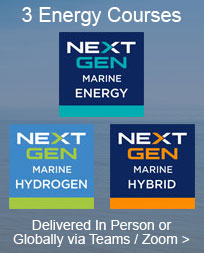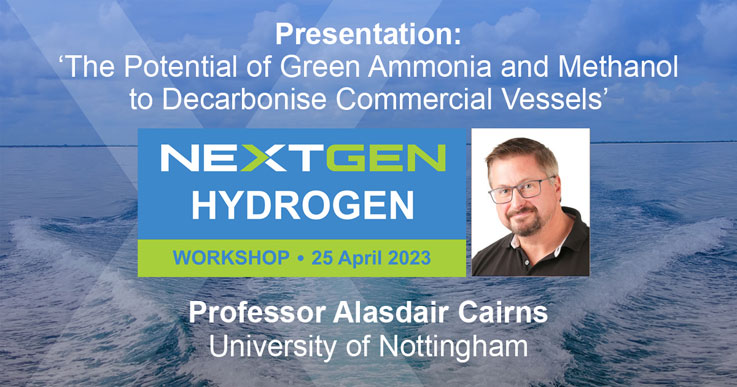Prof Alasdair Cairns – Chair of Propulsion Systems, University of Nottingham
Professor of Mechanical Engineering with a background in low carbon propulsion systems within both academia and industry. Member of the Fluids and Thermal Engineering Research Group.
Expertise includes, hybrid powertrain systems integration, powertrain thermal management (e-machine, batteries, IC engines), low carbon IC engines and fuels (heavy duty and light duty, H2, ammonia, biofuel), advanced combustion systems (HCCI/CAI, turbulent jet ignition, dual fuel), advanced electric machines (design, operation, manufacture).
Former positions include Deputy Head of Mechanical Engineering Department and Professor of Automotive Engineering, Brunel University London, Principal Research & Development Engineer at MAHLE Powertrain, Senior Research & Development Engineer at Cosworth Technology.
The Potential of Green Ammonia and Methanol to Decarbonise Commercial Vessels
This presentation looks at how ammonia and methanol could be considered as alternative fuels for various maritime sectors. Besides having extensive experience of hydrogen, the University of Nottingham is leading a new project to investigate the potential of ammonia to fuel and decarbonise the long-haul shipping industry and boost the UK’s powertrain sector. MariNH3 is a £5.5m project that aims to develop new and disruptive engine technology to cut pollution emitted by today’s diesel-powered marine vessels. There are issues with energy density for competing solutions such as battery-electric and fuel cell. Ammonia could have diesel-like efficiency and energy density, plus is cheap and easy to store as liquid fuel. Formula 1 has already made the leap in its engine design to be capable of running on sustainable fuels. A technology transfer challenge from automotive to marine is to see if it can be scaled up to the levels needed.
Download NEXT GEN Workshop April 2023 Presentation (password required)











